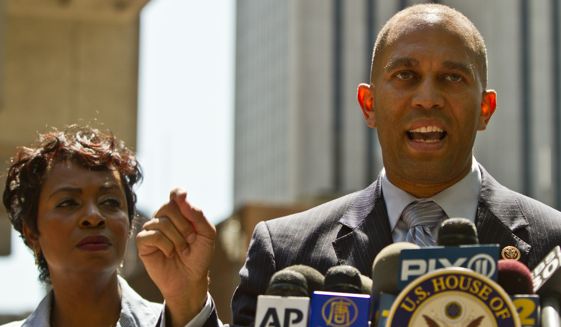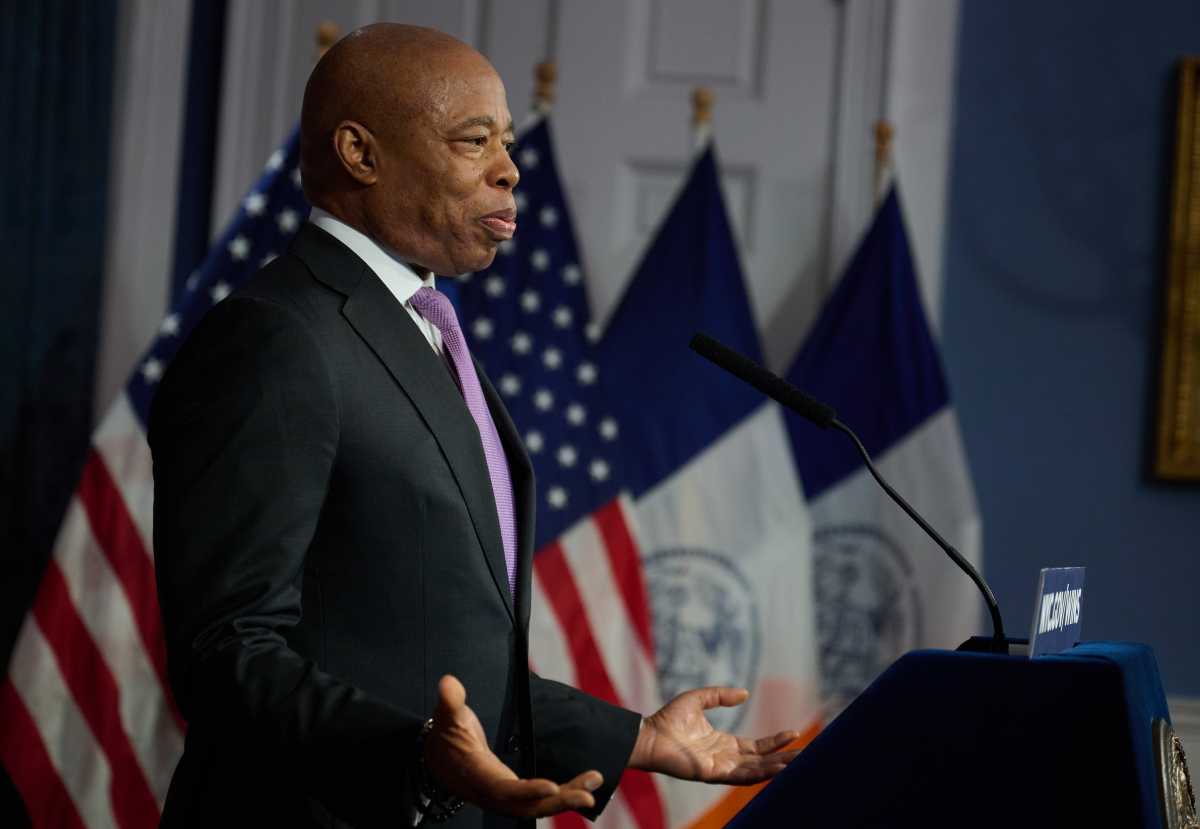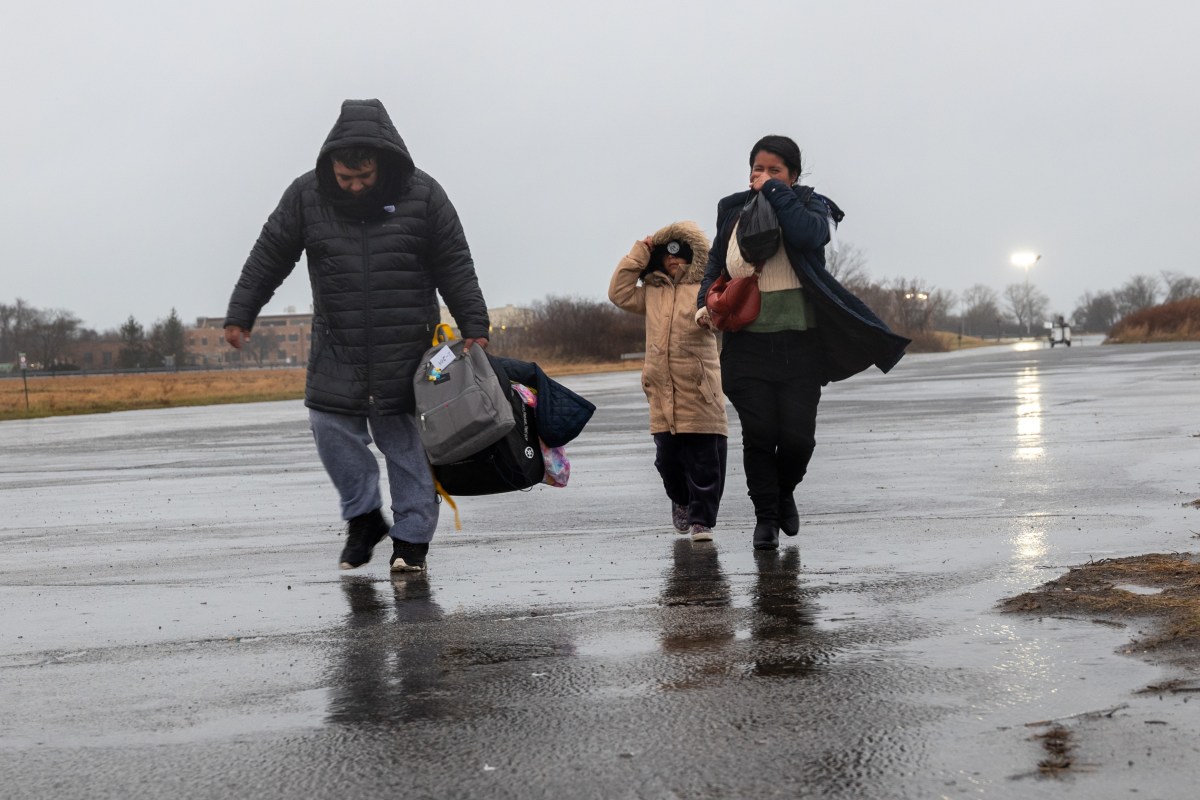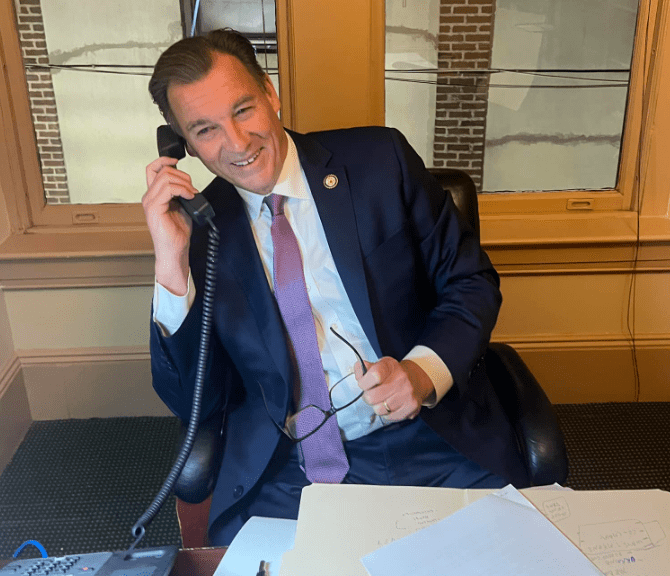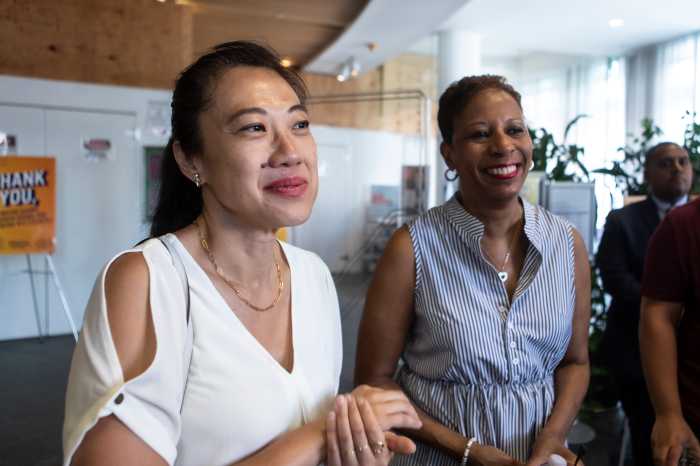U.S. Rep. Hakeem Jeffries (D-Brooklyn/Queens) is fighting for two voting rights bills in Congress. The House is sending the Freedom to Vote Act to the Senate, which will stop efforts to restrict early voting, vote-by-mail, and ballot drop boxes.
In a speech on the House floor, Jeffries refuted what he called the radical right’s campaign to close off certain voting rights, Jeffries made a speech on the floor of the house detailing why it is important to democracy to defend voting rights bills.
“There are people who died, lost their lives, shed blood to make sure that Black people and everyone in America could vote. We’re not going backward. We’re only going to go forward. You better back up off of us,” he said.
Each state manages its own elections, and localities also have some leeway in deciding how each polling place will run—including the use of electronic voting, rules for absentee ballots and mail-in voting, and registration deadlines. The Freedom to Vote Act attempts to establish a federal baseline for access to the ballot box. That means a minimum number of days for early voting, a standard for acceptable forms of ID, mail-in voting for any reason, and more.
Jeffries spoke at a press conference with the Congressional Black Caucus in support of the bill, saying that the lack of these reforms is creating a voter suppression epidemic. “We must crush it and we will crush it,” he said. “You can’t have a government of the people by the people and for the people, unless every single American has the unfettered ability to choose their representatives and fully participate in American democracy.”
Legislation from Republican lawmakers across the country doesn’t outright take away the right to vote; Rather, they reinforce barriers to access that disproportionately affect the Black community. Some of those barriers are long lines due to not enough polling places in undesirable neighborhoods, strict voter ID laws, not enough time to vote early, and not enough leeway for mail ballots. Some of these barriers specifically affect service workers and impoverished neighborhoods. According to data from the Brennan Center for Justice, a nonpartisan law and policy institute known for left-leaning views, 19 states passed 34 laws that restrict voting in some way.
“We are here today defending our democracy for one reason, and one reason alone. It’s because the radical right has decided that the only way they can consistently win elections is to engage in massive voter suppression,” Jeffries said in his floor remarks.
Because there are so many facets to organizing election day, the Freedom to Vote is wide-reaching. It includes limits to redistricting to avoid partisan gerrymandering, and campaign finance limits as well.
The John R. Lewis Voting Rights Advancement Act is more narrow and specific. It extends the rights of the Voting Rights Act of 1965, which outlawed the discriminatory voting practices common in southern states after the Civil War. However, these discriminatory voting practices were also found in the north and notably in Brooklyn, where the Federal government had to come in a create a voting rights district resulting in the election of former U.S. Rep. Shirley Chisholm – the first Black woman elected to the U.S. Congress.
The new bill would enforce a provision limiting states with histories of discrimination from immediately passing voting reform bills.
To pressure the legislature to get the bills passed, President Joe Biden is expected to meet with the Senate Jan. 13 and work with them to change filibuster rules that are delaying the decision.
Jeffries says they will pass the act “by any means necessary, including reforming a filibuster rule that is dripping in racist history in defense of slavery.”


